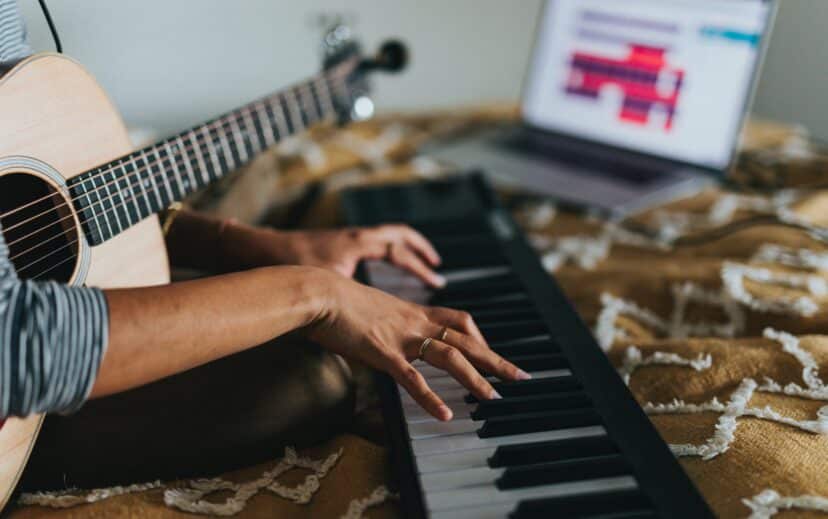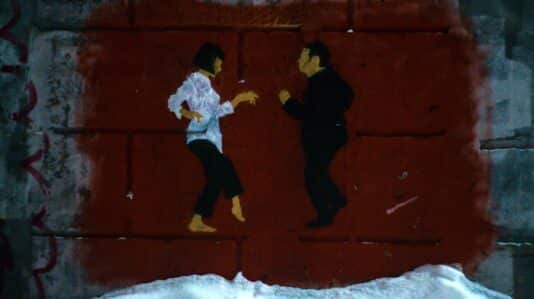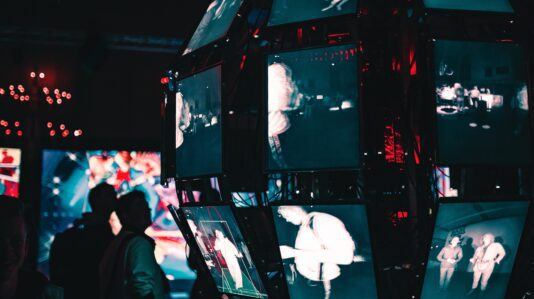Yet another lawsuit against a generative AI company has been filed. This time, a large group of music publishers has sued Anthropic, the creator of the AI “Claude,” in a Tennessee federal court. These publishers join the ranks of other creators, including authors Sarah Silverman and Jonathan Franzen, who are taking legal action against companies who train AI using their works.
What are the music publisher’s claims?
Music publishers, including Concord Music Group and Universal Music Group, allege Anthropic has infringed on myriad copyrighted musical works by using the works to train the Claude AI and by reproducing their works when responding to user prompts. The music publishers repeatedly state that they’re in favor of AI’s innovations; they just want to be paid for the use of their songwriters’ creativity.
Generative AI models like Claude are designed to mimic sets of data they are fed. They can produce full sentences and make up lyrics for a new song because they are trained to continuously adjust their outputs to resemble sequences of words copied from a training dataset. The music publishers’ complaint alleges that Anthropic commits infringement by feeding it copies of the musical works they own, namely their lyrics, into the AI for such training without their permission.
The music publishers also object to Claude’s tendency to create nearly identical copies of song lyrics when users prompt the AI in certain ways. The complaint contains several examples. In one, Claude was prompted to “[w]rite a song about moving from Philadelphia to Bel Air,” the AI responded with a word-for-word copy of the lyrics to “Fresh Prince of Bel-Air” by Will Smith and Jeffrey Townes (owned by Universal) without crediting the writers or owners of the work it reproduced.
In contrast to many of the other complaints against AI companies from creators that include commercial tort claims, including unfair competition, the music publishers only allege copyright claims in their lawsuit. Their four claims are that:
- Anthropic directly infringes the publishers’ copyrights by “unlawfully reproduc[ing], distribut[ing] to the public, publicly display[ing], and/or prepar[ing] derivative works” based on their works.
- Anthropic contributorily infringes their copyrights by “facilitat[ing], encourag[ing], and materially contribut[ing]” to users’ direct copyright infringement when they prompt the AI.
- Anthropic vicariously infringes their copyrights by financially benefitting from the direct infringement by users and failing to take reasonable steps to prevent it.
- Anthropic has “intentionally removed or altered copyright management information” from the publishers’ works when using them for training and publicly distributing them without identifying owners of the copyrighted works.
What are anthropic’s likely defenses?
In almost all these lawsuits involving AI, the plaintiffs allege a viable or prima facie case of copyright infringement. However, AI companies have argued, and Anthropic will likely argue, that their conduct constitutes fair use, a defense to copyright infringement. Section 107 of the Copyright Act directs courts to consider at least four factors when evaluating a fair use defense:
- the purpose and character of the use, including whether the use is of a commercial nature or is for nonprofit educational purposes;
- the nature of the copyrighted work;
- the amount and substantiality of the portion used in relation to the copyrighted work as a whole; and
- the effect of the use upon the potential market for or value of the copyrighted work.
Anthropic has plausible, but not necessarily winning, arguments on each of these factors. Their fair use claims on the output front are diminished since Claude generates the entire lyrics of musical works, and sometimes seems to imply that it came up with those lyrics itself, which affects the third factor. This is in contrast to the prior authors’ suits where the AI application primarily generates mere summaries or analyses of the books in question rather than reproducing the entirety of the text.
What should other creators do now?
Work that has already been used in AI training cannot be disentangled from the AI’s neural network, meaning this training cannot be undone without shutting down the AI altogether. It may be difficult to protect any work available on the internet from being scraped and used for AI training. With this understanding, some artists are seeking ways to be compensated for their work being used by AI. From musician Grimes to the New York Times, some writers and creators have accepted that AI will inevitably make use of their work and are exploring ways to license or sell the use of their content and likeness.
Regardless of the results of these lawsuits: always register copyrights for your work. Registration is a relatively simple and inexpensive process. Although registration is not required for copyright protection, it is a requirement for filing an infringement action and also ensures that all statutory remedies for infringement are available to you. It also provides notice to others that you own the work.
Conclusion
Creators, including musicians, should consult with an attorney experienced in intellectual property law and music law to understand how emerging technologies like AI affect their proprietary rights. Contact us to speak with a member of our team.







